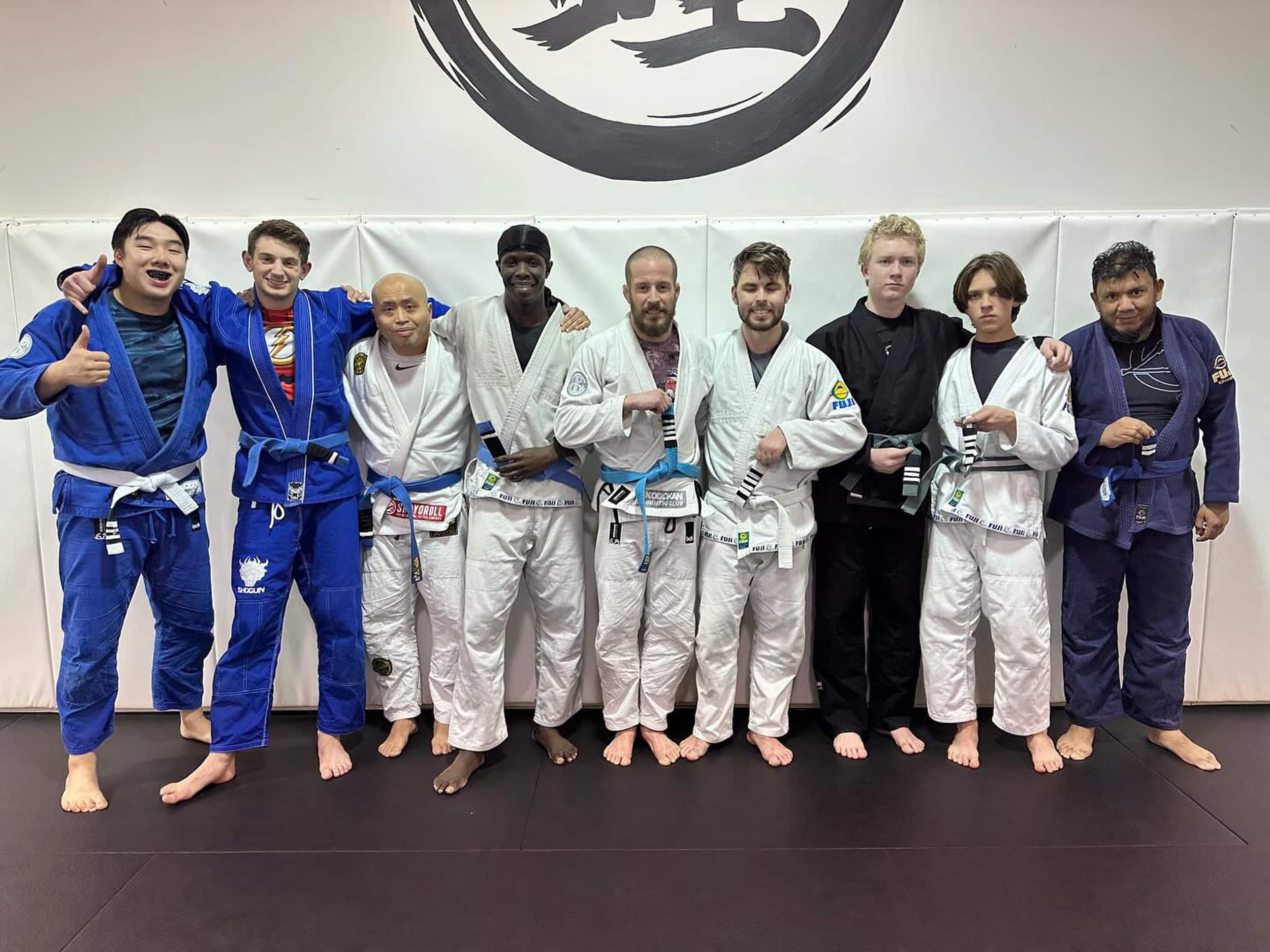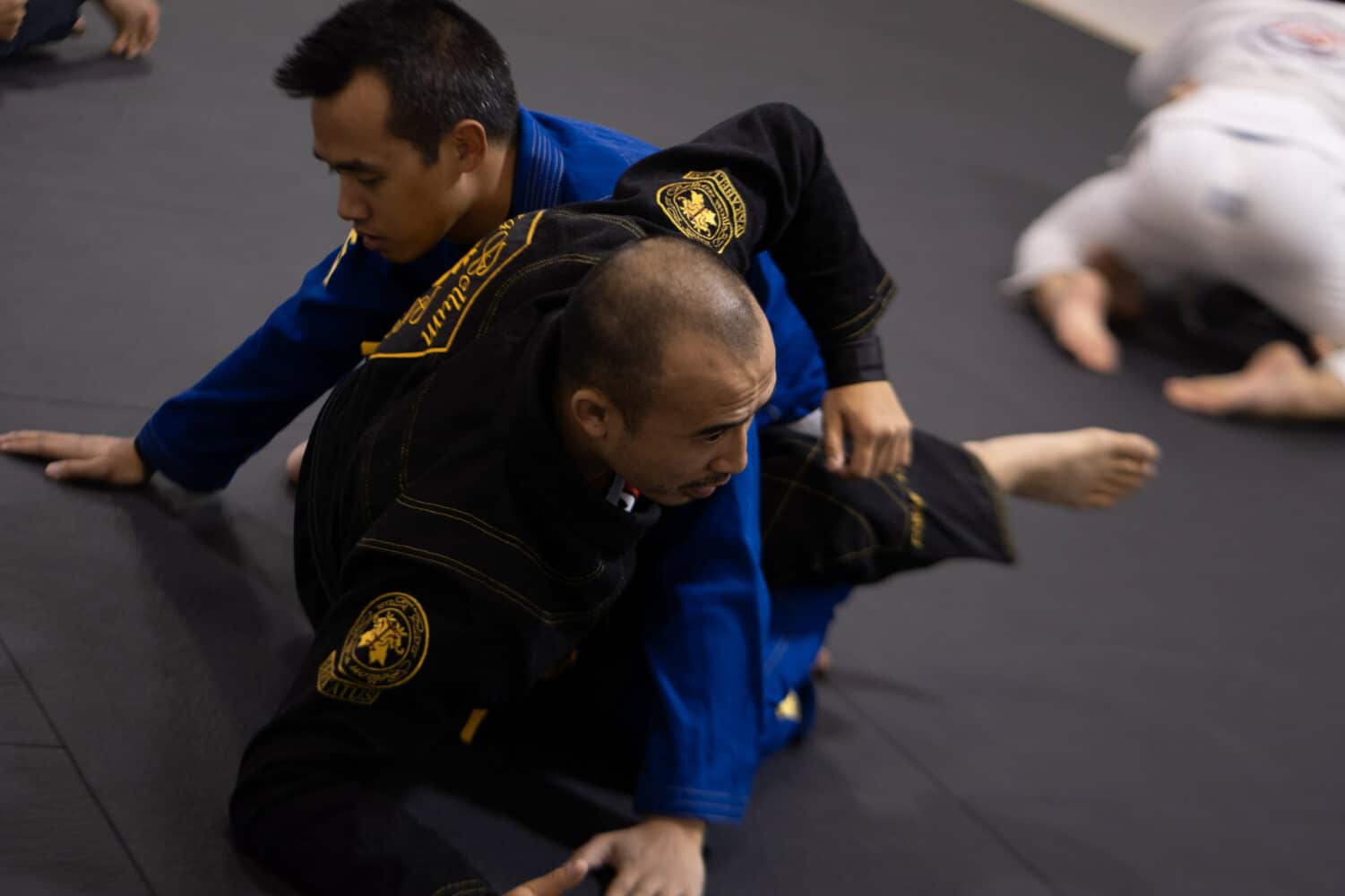Little Grasshopper Lessons
Little Grasshopper Lessons: How to be more coachable in Jiu-jitsu
When it comes to success in Jiu-jitsu, the simple truth is that coaching matters. This is the reason why some academies are so successful in producing world champions. And why many head instructors trace their lineage with pictures of their coach and their coach’s coach on the dojo wall.
Respect is given as an acknowledgement that good instruction is crucial to success. If coaching is so important, then the opposite side of the same coin is that the ability to be coached will also have a large impact on your development as a Jiu-jitsu fighter.
After all, you could have the best Jiu-jitsu coach in the world, but if you do not have the right mindset to be coached this will limit your ability to receive, absorb, and implement instruction.
While time and effort is spent on choosing the right academy in order to have good coaching. Not a lot of energy is spent by athletes thinking of how they can be more coachable in order to become a better Jiu-jitsu fighter.
Accordingly, below are five Little Grasshopper Lessons suggested tips. For how to be more coachable in Jiu-jitsu:
1.Be humble
Humility is the starting point of learning in Jiu-jitsu. Because if you already think you know everything it will be hard to teach you anything. This aspect of being coachable presents a special challenge in Jiu-jitsu because many white belts, especially men, think they have a natural innate ability to fight.
In fact the raw aggression and strength that many people think is the natural way to fight. Is the opposite of the refined use of skill, technique, and control that Jiu-jitsu teaches. Overly relying on strength and raw instinct is more likely to leave you gassed out. And vulnerable to defeat or injury. This is why it is normal to see a white belt being tapped out by a much smaller blue or purple belt. The white belt may well be panting and red in the face from exertion of effort, while the blue or purple belt may barely be breaking a sweat.
Understand that there are levels to the Jiu-jitsu game and that when you are a white belt you are just at the start of a very long journey. Do your best to listen and to try to absorb and implement what your coach teaches. Even if you do not fully understand or agree with what you are being taught do your best to have an open mind. So you will be a good receptacle for the knowledge and instruction that is being given to you.
2.Be disciplined
If humility is the starting point of being coachable in Jiu-jitsu, discipline is a close second. There is a sense in which being humble already requires a measure of discipline. As it takes some effort and self control to put ego aside and be humble. However discipline applies to many other aspects of Jiu-jitsu that will impact your ability to be coachable.
It goes without saying that one of the most important aspects of discipline is showing up to practice. You cannot be coached if you are not in practice to be coached. Discipline in Jiu-jitsu, however, transcends even showing up to and trying hard at practice. Your eating, sleeping, diet, exercise habits, your emotions and relationships, and other lifestyle choices. Will all have an impact on your performance and ability to be coached.
If you show up to practice tired, bloated from a large meal, hungover or distracted, your ability to be coached will be reduced. When people talk about a “Jiu-jitsu” lifestyle the first thing that should come to mind is discipline. Rather than tattoos or fancy kimonos.
3.Be passionate
Being humble and disciplined is hard work. It takes effort and energy to put the ego aside and to implement the right lifestyle choices. Which will allow you to be more coachable. Where will this energy and effort come from if not from your passion for Jiu-jitsu?
Passion is a comparable to a fire that burns inside you. And it is tempting to think of passion as something that you either have or you don’t. And accordingly something that can’t be taught. There is even a brand of kimonos with the stamp “you can’t teach heart”.
The truth is that all of us already have a degree of passion for the sport of Jiu-jitsu. And that the degree or intensity of this passion can be nurtured from a small flame to a raging fire. Probably the biggest thing that can nurture your passion for Jiu-jitsu and therefore help you become more coachable is a positive mindset. In Jiu-jitsu, as with life, the people with a positive mindset tend to be the ones who have more success.
Learn from but do not let yourself get caught up or stuck on setbacks. Whether they happen in class, competition, or elsewhere. Do not take losses or feedback personally. Do not compare yourself to others in a negative or positive way. As much as possible focus on the positive things Jiu-jitsu brings to your own life such as the learning. The fitness, the progression, camaraderie, and the overall journey with all its peaks and valleys. Be grateful for the opportunity to learn and progress in a martial art that has a long and proud lineage and history. Celebrate your achievements but not just your own. Celebrate those of your teammates, competitors, your coach, team, and even those that elevate the entire sport.
4.Be a team player
While you rely on your coach to be coached, your coach also has a responsibility to coach all the other Jiu-jitsu players. And to progress himself in the discipline. Understanding that you are a small but important part of what makes a Jiu-jitsu school successful can go a long way towards being more coachable.
Being a team player doesn’t mean you try to coach other athletes or let them know what you think about what you are doing. Especially if you are a white or blue belt. Not only is this extremely disrespectful to your instructor, there is a real risk that you could teach someone something wrong. And therefore actually delay someone’s progress rather than help them. The other thing is that when you teach someone you also reinforce the idea for yourself. So you could be teaching yourself something wrong. Let the coaches do the coaching. It is fine to ask questions but until you are a brown or black belt, possibly purple you should not try to step in the role of instructor.
Being a team player means taking care of the small things such as keeping your uniform and yourself clean. And clipping your nails. It means being friendly and courteous, and not trying to hurt anyone or be a gym bully. It also means not being a sore loser when you get submitted. And not making a big fuss when you are accidentally hurt unless it is an actual injury. Coaches will notice the little things even when they do not immediately react, that is their job. The way you interact with the other jujiteiros and jujiteiras in the dojo will go a long way towards making you more coachable.
5.Think of coachability as a learnable skilll
The common way to progress despite the complexity and vastness of Jiu-jitsu is to break down the different areas into discrete sections and to focus on fundamentals. One class you might focus on submissions from mount, while the next class might be about escapes from halfgaurd, and so on. Just as you can improve your overall game by focusing on and training specific areas of Jiu-jitsu. It is also possible to focus on your overall coachability by focusing on different areas which might make you more coachable. Whether it is your humility, discipline, passion, or teamwork that needs improvement. You can always focus on one of these areas during a week or month and try to get better at that area.
The positive thing about thinking of coachability is a skill set is that if you master it, this can lead to rapid progress in all other areas of Jiu-jitsu. When asked, Jiu-jitsu coaches frequently site coachability as the distinguishing feature that set their champions apart. Rather than any physical feature or attribute. The other positive thing about thinking of coachability as a skill set is that it puts a level of control in your hands. Your coach was probably already coaching before you started Jiu-jitsu. And your ability to influence his or her coaching may be limited. But your ability to become more coachable is something you can work on and can lead to quicker improvements in all other areas of your game.
Little Grasshopper Lessons Conclusion:
Focusing on becoming more coachable is an important but often neglected part of the Jiu-jitsu journey. It is a key skill set than can unlock many other areas faster. One thing to remember is that while being more coachable is largely in your hands. A good coach will also gently guide you towards becoming more coachable. Be patient with yourself in all areas of Jiu-jitsu, including your coachability.
Little Grasshopper Lessons takeaway: Progress will be slow and cumulative, but not always linear. Your coachability is likely to improve as you progress in your Jiu-jitsu journey. But if it is something you specifically work on it will improve further and faster.
It is somewhat ironic that you you are likely to be more coachable as a black belt. Then you were as a white belt, when the ability to be coached would have really been most useful! The journey of Jiu-jitsu never ends though. So the quicker you begin to work on and master your coachability skills, the further, faster, and happier you will travel on your Jiu-jitsu journey. Travel well my friends, and happy rolls.

